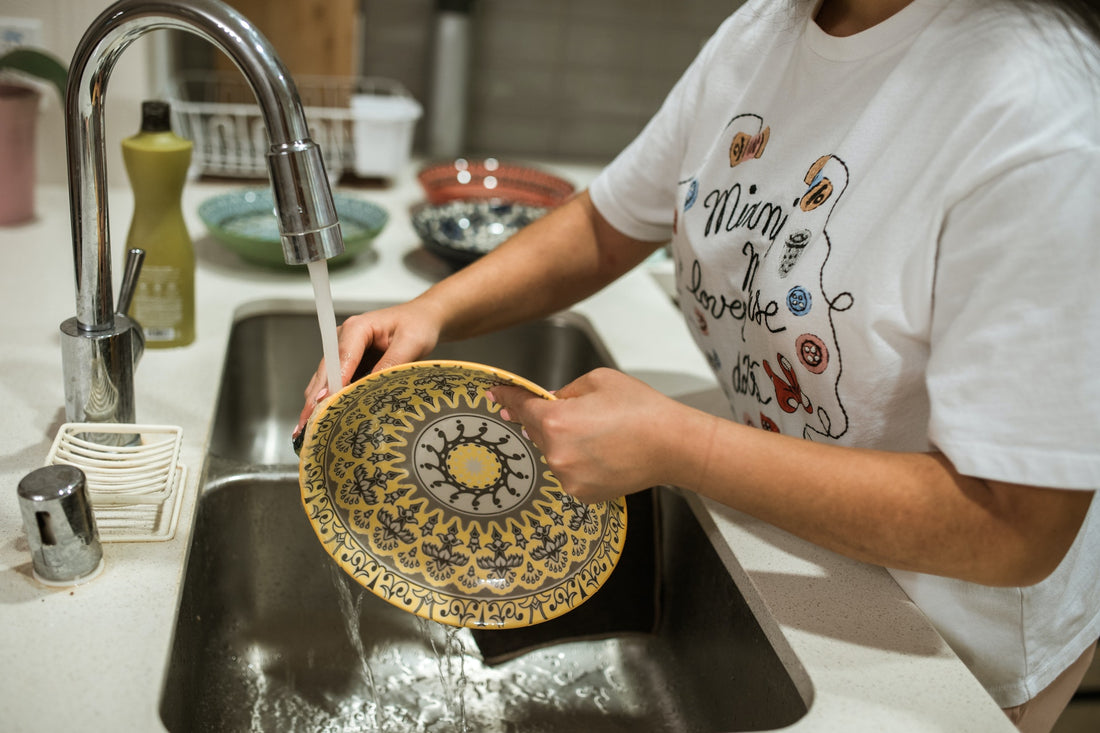You might have heard of water filters before.
After all, they’re quite popular in the country as over 85% of Americans have hard water in their homes.
Besides, scandals such as the Flint crisis or the Erin Brokovich story have made people increasingly wary of what their water may contain.
Now, if you’re looking to buy a water filter, you might come across some products called water softeners.
And that’s where it can get confusing! What’s a water softener, and does it filter water the same way water filters do? And most importantly, do you need one?
In this post, we’ll explain the difference between a water filter and a water softener and discuss what’s best for your home.
What’s A Water Filter, and What’s a Water Softener?
Before explaining the difference between a water filter and a water softener, we first need to understand what hard water is and how it affects your home.
What’s Hard Water?
Hard water refers to water that’s high in calcium and magnesium. When the water percolates down through the soil, it picks up the different minerals on rocks and in the ground. Because the Earth’s crust contains abundant levels of minerals, including calcium and magnesium, any water source coming from the ground has a fair amount of these minerals. And water containing a high amount of calcium and magnesium is called hard water.
The problem with hard water is that the minerals tend to deposit on appliances, your skin, hair, and clothes, damaging them in the process.
You can read more about hard water-related issues on our blog.
That’s where water filters and water softeners can help.
What’s a Water Filter?
Numerous studies have shown that herbicides, arsenic, heavy metals, and disease-causing pathogens such as E.coli can be found in water supplies across the country.
That’s why, depending on the region you live in, a water filter may be a no-brainer.
Water filters are designed to remove contaminants and impurities from water using a physical barrier or a biological or chemical process, depending on the type of filter. A water filter can remove bad tastes, odors, bacteria, and chemicals.
There are different types of water filters utilizing different processes, including under-the-sink filters, water pitchers, or faucet filters.
What’s a Water Softener?
Unlike a water filter, a water softener doesn’t filter water.
But what does it do then?
A water softener is designed to remove calcium and magnesium from the water by ion exchange. It is used to protect your appliances, plumbing, and fixtures throughout the house.
How does it work?
The mineral tank of a water softener is loaded with ion-exchange resin (thousands of small beads). And as the water goes through the water softener, the ion-exchange resin exchanges minerals causing hardness in your water with sodium ions. Once the beads have attracted all of the calcium and magnesium contained in the water, the water softener goes into a regeneration cycle mode, using salt water to flush out the minerals.
Do You Need a Water Filter Or A Water Softener?
A water softener won’t remove water contaminants from your water, whereas a high-quality water filter will. Therefore, a water softener is great if you simply need to remove hardness-causing minerals. On the other hand, a water filter is the best solution to remove contaminants such as lead, chlorine, or arsenic.
What About Salt-Free Water Softeners?
Some people find adding salt to their water softener problematic. Not only can it turn into a hassle and be costly, but the chloride produced during the process can pollute groundwater. What’s more, it will add a small amount of salt into your water which can affect dietary requirements, especially if you’re on a low sodium diet.
So, if you’re looking for an eco-friendly alternative, a salt-free water softener might be the solution!
Salt-free water softeners work by crystalizing the calcium and magnesium ions, thus preventing scale from forming in your plumbing system.
Studies have shown that the average American household spends up to $50 a month on cleaning supplies. Now, a salt-free water softener will make cleaning your dishes, clothes, and appliances much easier, reducing the number of cleaning products you need to buy to clean your home efficiently. This means that even though a salt-free water softener can seem like an investment, it will actually save you money in the long run.
Further Reading
Do I need a water softener system in Austin, Texas?
Do water softeners remove chlorine?






